TABLE OF CONTENTS
The creative process is a lot more taxing than it might seem to the uninitiated.
It’s not manual labor, granted, but it does drain one’s energy in wholly unexpected ways — even when you’re in a state of flow, doing your best work, and creating what may or may not end up being your “magnum opus.”
Finding some kind of balance, therefore, is of the utmost importance.
You can’t create all the time, nor should you. And whatever you do during your downtime often ends up playing a much bigger part than you’d expect; those are the moments that serve a tremendous purpose: to rejuvenate your mind, your energy, and your “creative juices,” too.
What you do during those moments will inevitably leave a lasting mark, both on you as a human being but also on your creative process as well.
The things you read, the music you listen to, the people you surround yourself with, the food you eat, the things you see throughout the day, the thoughts that cross your mind, and the way in which you navigate your waking hours.
All of this will affect you in numerous different ways, most of which will be unconscious.
Boredom, too, can often serve as a catalyst — contrary to popular belief.
Boredom Fuels Creativity
The thing is, you’re only as good as the sources from which you draw inspiration.
We’re all born as a blank canvas, which stresses the importance of submerging oneself in as many seemingly diverging art forms and mediums as possible. That facilitates growth, and it often does so in wholly unexpected ways.
Having as deep a well as possible will set you apart from the crowd. It’ll nourish and sustain you for years if not decades to come, and that kind of stamina, one could argue, is absolutely vital in today’s world.
The process of creation is no longer locked away in some distant, walled garden — it has been democratized almost entirely.
You no longer have to go to any kind of school or university, to enroll in a class or course to learn the tools of the trade — all it takes is a tremendous amount of willpower and an internet connection. No tuition fees, no artificial barriers to entry, nothing.
It’s obviously not as simple or straightforward as that last paragraph would lead you to believe, but being a creative professional in today’s day and age is a lot more feasible than it ever was in the past. And it’s a lot cheaper, too.
And so, if you’ve embarked on this journey — a journey on which you’ll face stiff competition — you’d be wise to harness even your moments of boredom.
1. Watch Tutorials
The programs we all use on a daily basis keep on getting more and more complex with each new update.
There’s always something novel for one to master, to comprehend, to explore. You shouldn’t ignore these updates as they can, by all means, make a world of difference.
Artificial intelligence is the biggest and most prominent buzzword these days, but it sure can be leveraged to great effect.
DaVinci Resolve, for instance, can now automatically generate subtitles — and it’s staggeringly good at it, too. MidJourney needs no introduction, and neither does Stable Diffusion.
Heck, even Adobe Firefly deserves a mention, as does Figma, a collaborative web app for interface design that just got a series of mind-blowing updates, all of which are devised in such a way to streamline one’s workflow and make the creative process a bit less taxing — all through the power of AI.
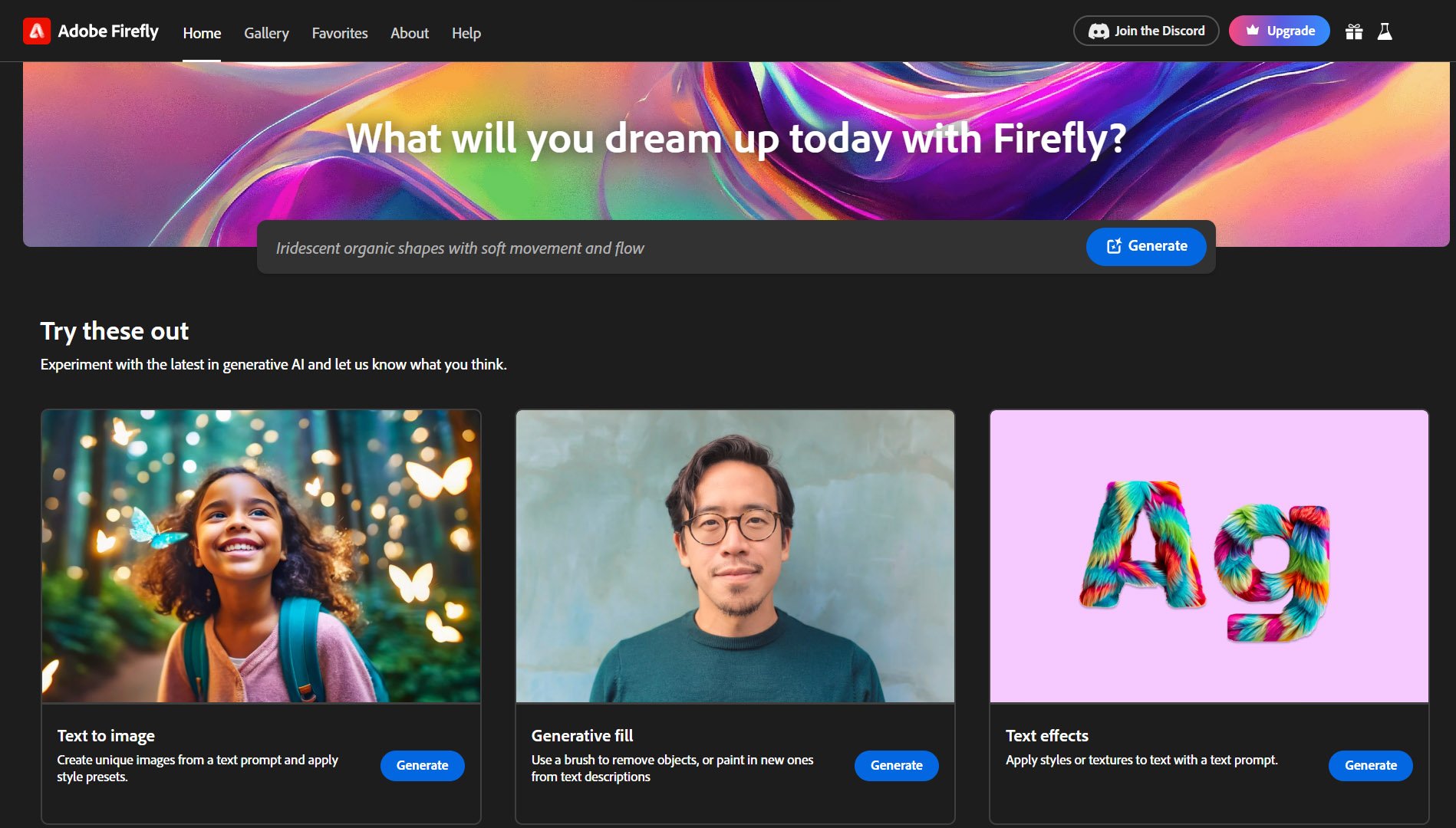
Image Source: Adobe
All of these new programs and software suites have their own learning curves, and the sooner you start exploring them the sooner you’ll have yet another tool within your arsenal.
Use your free time to explore the things that interest you, be they computers, peripherals, programming languages, app development, content creation, video editing, 3D modeling, computer-aided design, and everything in between.
It’s never too late to learn something new and tutorials are obviously the fastest and most user-friendly way of doing it.
2. Challenge Yourself With New Projects and Experiments
You might be tremendously experienced, but there’s surely still a breadth of options and modes and features you haven’t explored — features that might come in clutch in the not-so-distant future.
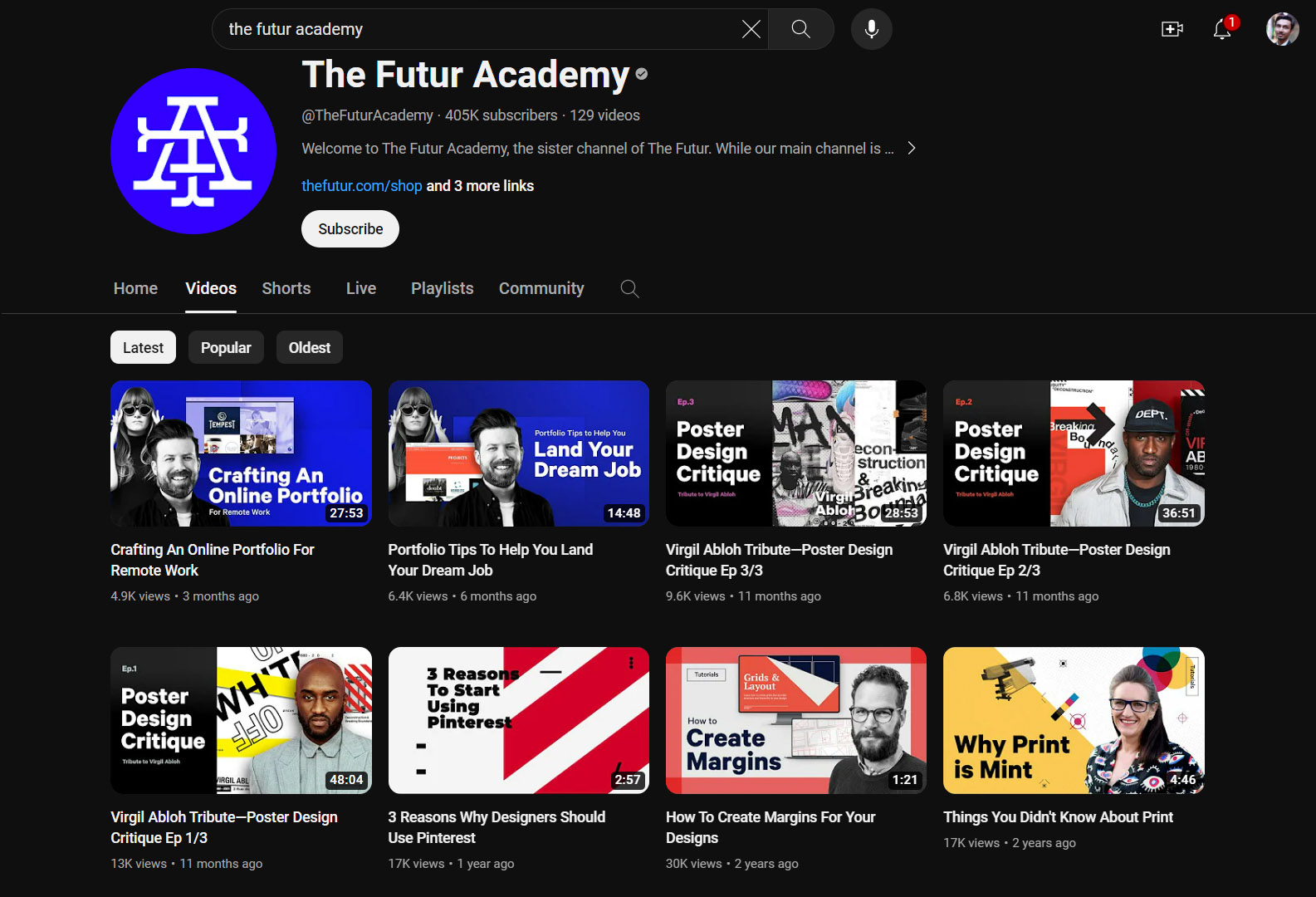
And so, with that in mind, there’s really no reason why you shouldn’t embark on a brand new experiment during your downtime; an experiment that might not challenge you creatively, but will nonetheless expand the limits of your knowledge and allow you to have an even better grasp of your software suite of choice.
So whenever you’re bored, you might as well come up with a task or a project of some kind and experiment to your heart’s content.
You would learn at your own pace and there wouldn’t be any deadline hanging over your head — it’d be a playful kind of exploration, and it would feed into your professional work as well.
A win-win, if you will.
3. Learn From More Seasoned Creators and Artists
YouTube is littered with top-notch content from high-profile creatives, directors, artists, engineers, and everyone in between.
There’s a staggering amount of knowledge out there, all of which can be consumed at your leisure and, perhaps most importantly, it’s all entirely free.
Learning about, say, shortcuts and macros and software optimizations matters a lot, but one could argue that it doesn’t matter quite as much as attaining a better understanding of the creative process and the hardships and doubts and pitfalls which ail those who create, be it for a living or for a hobby.
We all tend to face the exact same hurdles. Screenwriters, for instance, still feel powerless against the blank page, even after winning an Oscar (or two).
Those fears and mental blocks rarely, if ever, go away — one just learns how to best navigate around them (if not through them).
So listen to those who’ve walked the less beaten path, to those who’ve already gone through the ups and downs of being creative.
Listen to those who’ve spent decades fighting the same battles you might be facing right now. Learn from them, as that way you’ll stand a much better chance at harnessing your creativity and bringing something truly memorable into existence.
Tutorials, masterclasses, long-form interviews, memoirs, and so on and so forth are all incredibly valuable treasure troves, all of which are just a search away.
4. Diversify Your Skillset and Branch Out
We don’t have the luxury of hindsight in the present. And so you never really know whether the things you do today or tomorrow will ever leave a lasting mark — whether they’ll coalesce in the future and amount to anything sensible and worthy of mentioning.
This means that embarking on each new challenge is essentially a leap of faith.
Still, the fact that things might not pan out in the future should by no means dissuade you from taking risks, learning new programs, diversifying your skillset, and branching out in any which way you can.
Some pairings are entirely natural: if you’re a video editor, then learning how to make motion graphics seems like a pretty reasonable avenue you ought to explore.
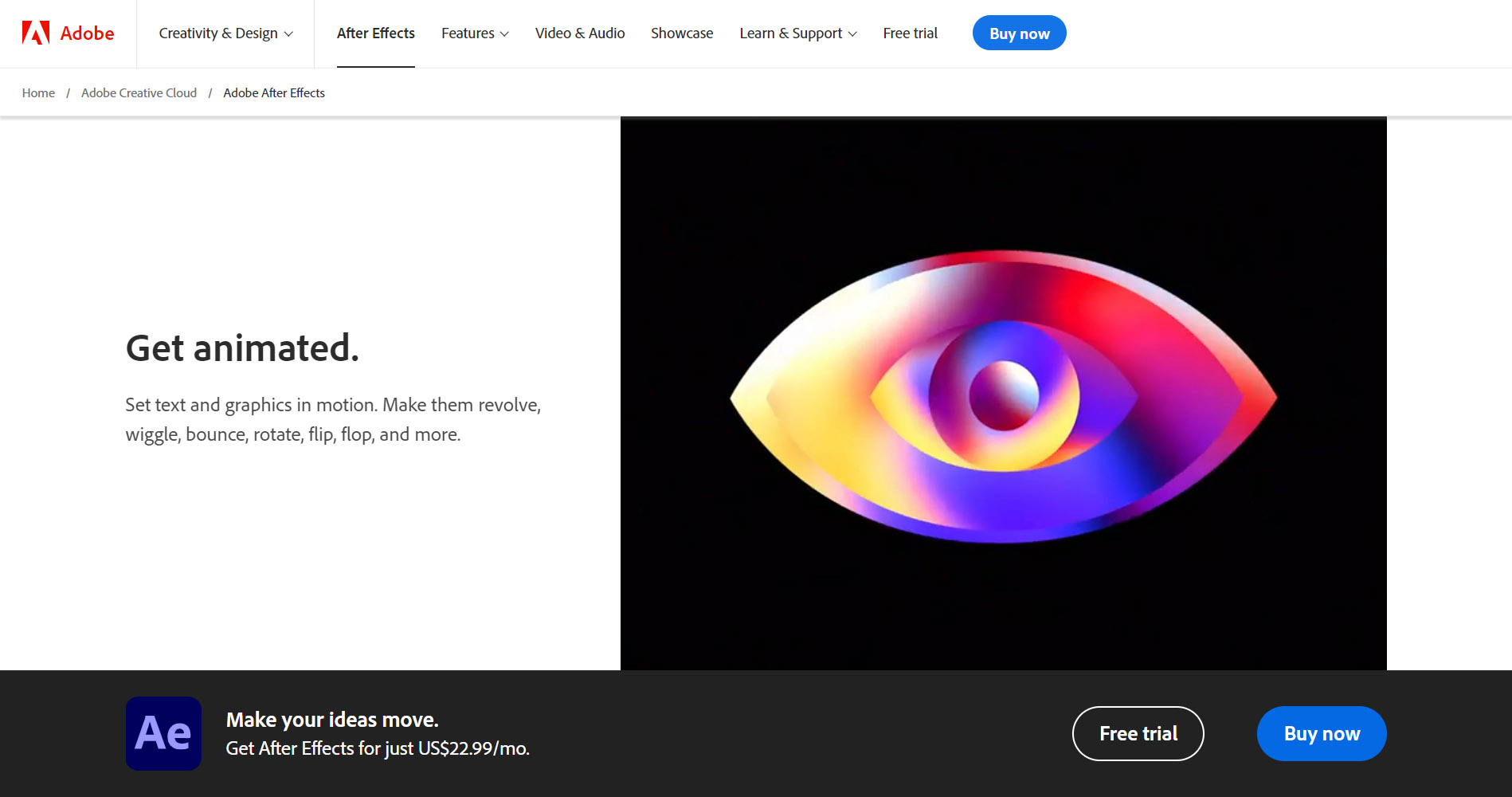
Image Source: Adobe
Other combinations are a bit more vexing but, fortunately, no less legitimate or viable: studying lighting design or scenography, for instance, might influence your work as a game developer further down the line.
Reading Henry Miller or Jorge Luis Borges might give you a new idea for an illustration, a sculpture, a type of sound. Watching old German expressionist films might inspire you to explore the darker elements of the human psyche — as it did for Arnt Jensen, of Limbo and Inside fame.
You get the gist.
Everything, no matter how seemingly unrelated, can have a profound effect on both your understanding of the world and your creative process. So give it all a shot, even though it might not seem all that related to your chosen field of work.
5. Read Books
The fact that so few people read books nowadays is a veritable tragedy. The world around us has changed, but the problems that we face on a daily basis haven’t.
We’re all struggling with self-doubt and a myriad of different traumas and quirks and flaws that come and go.
These things and “ailments,” while certainly frustrating, are still essentially human, and they’ve all been documented, explored, and dealt with by artists in the past.
Now, you don’t necessarily have to submerge yourself in history books or, say, philosophy (unless that interests you, of course), but reading memoirs, books on creativity, marketing, advertising, SEO, how-tos, and everything in between should be atop your list of priorities.
There’s a breath of knowledge out there, be it printed or digital, and it’s all “up for the taking.”
Steven Pressfield’s books are absolutely vital if you’re a creative (or want to become one), but you shouldn’t limit yourself only to living authors; Henry Miller’s memoirs, for instance, are jam-packed with timeless advice (for both writers and creatives alike), and so are Bukowski’s writings and those from Rainer Maria Rilke.
We’re spoiled for choice.
6. Listen to Music and/or Podcasts
Music is an endless source of inspiration, and that holds true regardless of one’s profession. And there’s so much of it, too — a seemingly endless list of genres and styles, all of which can serve as a tremendous boon to your creative endeavors.
The important thing here is that you don’t limit yourself to only the artists or genres with which you’re acquainted and comfortable with — you must branch out and explore everything that’s available. And it really is just a click or two away, so there’s really no excuse.
Rock, blues, jazz, classical music, film soundtracks, ambient electronica, ethno (or world music as some call it), chillout, dance, and everything in between. It all has something to offer to a creative — an idea, a vibe, an aesthetic of sorts.
Submerge yourself in as many genres as you possibly can, and soon enough you’ll start getting new ideas and twists for your own work, variations, and alterations that will embellish your creations.
Finally, be wary of cliches and stereotypes. When classical music is brought up, most folks only think of Mozart or, say, Bach.
And yet it is a genre in which many different composers worked, all of which had a different (and most distinctive) take and view on previously established conventions.
Rachmaninoff, Chopin, Debussy, Wagner, Dvorak, and many others are much less mainstream and yet were every bit as good and ingenious.
When someone mentions film music, most people think of Hans Zimmer, and yet there are so many other, endlessly different (and stylistically opposing) composers out there, like Max Richter, Gustavo Santaolalla, Michael Giacchino, Alexandre Desplat, et al.
The same holds true for every other genre as well. People, out of a severe lack of understanding, adhere to these stereotypes so that they can more easily compartmentalize things and “deconstruct” the world in more palatable, bite-sized chunks.
And yet there is no greater folly, as following in those footsteps will invariably cheat you out of a tremendous amount of joy and inspiration.
Give every genre a chance as they can all be inspiring in one way or another.
7. Watch Movies/TV Shows
Some folks think of movies and TV shows as a simple form of entertainment. Content, they call it.
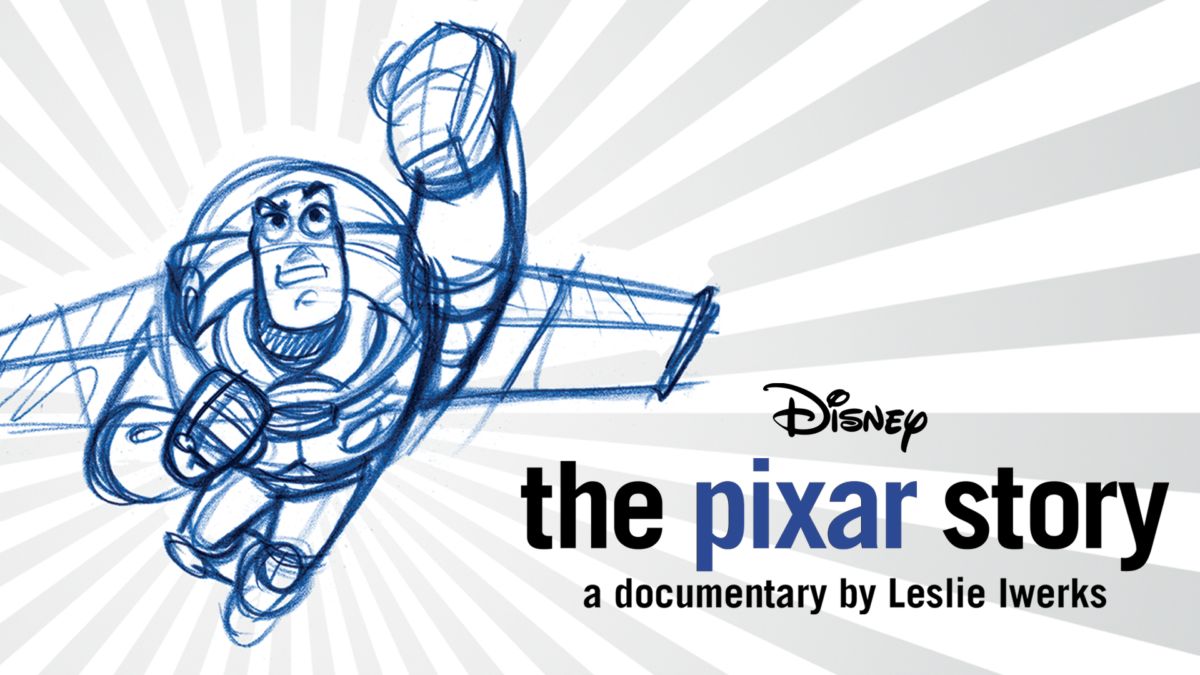
Image Source: Disney+
And yet that, too, is a misconception that came to prominence over the last decade or so, in no small part due to the sheer influx of high-budget superhero flicks and cookie-cutter TV dramedies that eschew all possible postulates of dramatic structure and narrative storytelling.
It wasn’t always like this, but in the world we now live in there’s very little time to reflect back and study the old masters.
Kurosawa, Kubrick, Bergman, Godard, Truffaut, Welles, and many others devised this art form through their own geniuses. Their movies explore the human condition and all that it entails. The hopes and dreams, the pitfalls and challenges that permeate through our daily lives.
And sure, you can watch Better Call Saul or, say, Suits, but that’s not really going to expand your horizons and have you stay up at five in the morning mulling over your existence.
Film is one of the most visceral art forms we have, and limiting yourself to only what the roaring multitude deems worthy would be a grave mistake.
Seek out the gems of the past, the movies and TV shows that laid the foundation upon which the seventh art was built upon.
8. Start Writing a Journal
To some, this might sound like a bit of “new age” nonsense.
Writing one’s thoughts in a journal or blog of some kind has gotten a lot of bad rap lately precisely because the act itself has been exploited ad nauseam by quasi-life gurus and pop psychologists looking to make a quick profit and amass a following on social media.
But keeping a diary — a virtual one, in this case — has been a human’s go-to way of expressing his or her deepest thoughts and feelings for centuries, and there’s a very good reason why: it’s an entirely safe space, one that is reserved for your eyes only.
It can be of great help if you’re facing a conundrum of some kind or are just going through a lot and are looking for a way to escape.
9. Play Some Games
One could argue that there’s no better way to unwind after a long day — or to combat boredom, for that matter — than playing video games. It’s a bit too good, one could argue.
Addictive is probably the best and most appropriate way of describing it. If you’re not careful, gaming could very well become an intricate mechanism for procrastination, especially if you have a group of friends willing to oblige and game alongside you every single night.
Still, it is a hobby worth exploring. The best part about it is that there’s a staggering gamut of options out there, titles of varying levels of quality and depth.
You have your Call of Duties, the Forza Motorsports, and Assassin’s Creeds, but also titles like Firewatch, Kentucky Route Zero, Disco Elysium, and the aforementioned Inside, all games that will leave a lasting mark. They’re contemplative, layered, and challenging, both psychologically and emotionally.
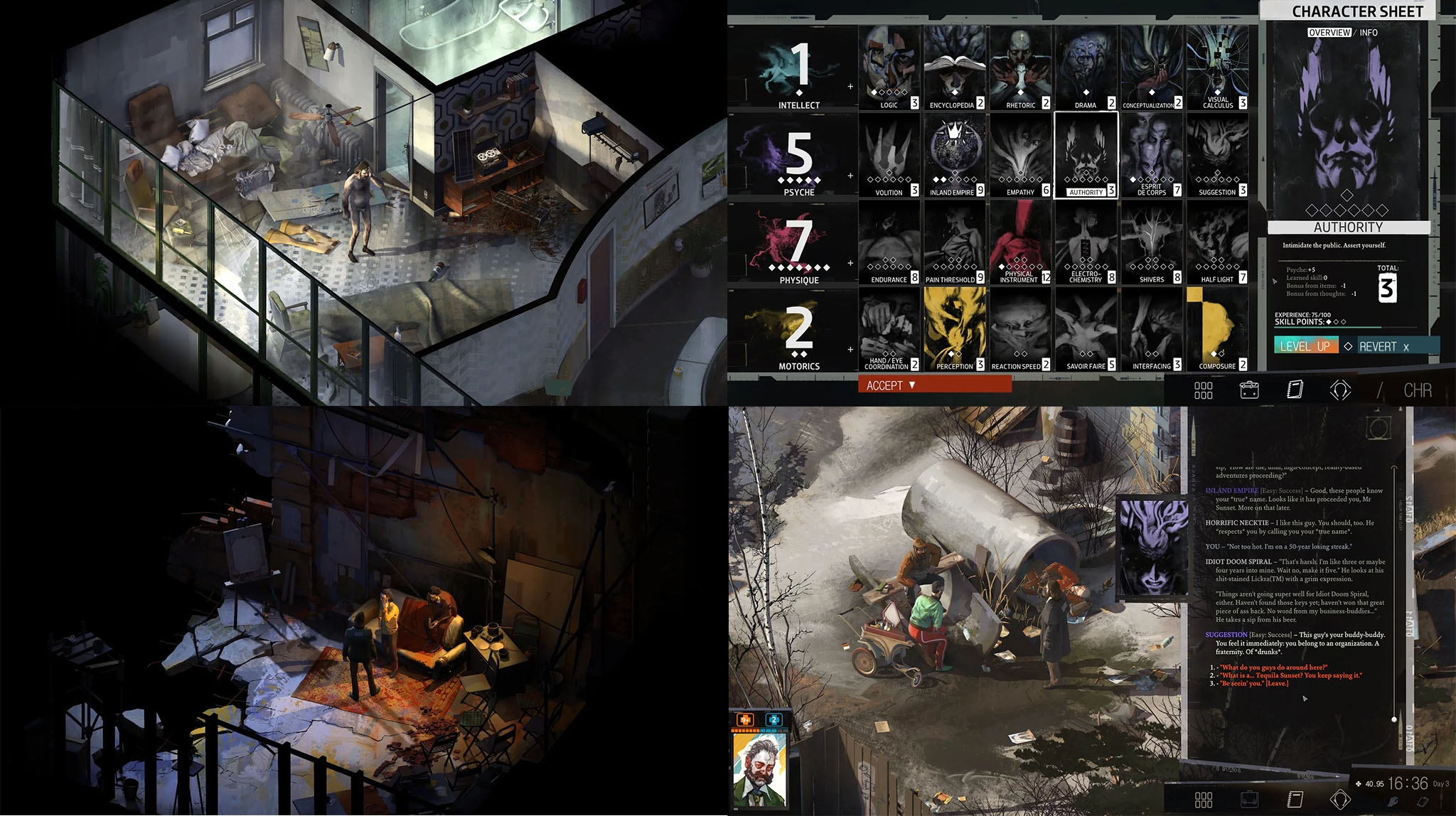
Image Source: Disco Elysium
They might not be as popular as, say, Counter-Strike, but they sure do bring something unique to the table — they’re small, miniature films that just so happen to be interactive.
They’re not video games in the strictest sense of the word, and that’s good as they’ll engage you in a wholly different way when compared to more mainstream offerings.
Now, playing video games isn’t a creative process in and of itself, but if you choose the right game, it sure can be, and it’ll give you a lot more to think about and mull over than you could ever imagine.
Conclusion
Boredom is far more important to a creative than people give it credit for. And it works in ways that are largely both intricate and subconscious.
What you do during your leisure time is, therefore, incredibly important. You can use those moments to grow, both as an individual and as a creative professional or content creator.
Broadening your horizons, getting acquainted with other forms and types of art, letting yourself experience something new and different is incredibly important, and it will feed into your profession and the level at which you work.
For the scope of your work to grow and evolve, you need to challenge yourself, to expose yourself to things and genres and twists and experiences which may be well outside your wheelhouse.
That will broaden your creativity, and deepen the well from which you draw inspiration from.
The point is not only to diversify one’s creative arsenal, but also to gain a better understanding of as many disciplines as possible — and all which they entail.
Don’t only read or watch the things that interest you the most — look for other sources of inspiration. You don’t want to create an echo chamber of sorts and, in doing so, distance yourself from all which the world has to offer.
After all, you never know what’ll summon the muses and get your creative juices flowing.
FAQ
Let’s go over a few potential questions you might have regarding this particular topic:
How Can I Be Creative On My Computer?
Once your work is done, there’s a myriad of different things you can do on your computer — and they don’t necessarily have to revolve around creating content for them to be creative.
Anything you can do that would broaden your horizons and provide you with a better understanding of your creative process and profession would serve as a tremendous boon.
Read books, listen to podcasts, explore different genres of music, scour the web for inspiration, watch long-form videos from your favorite creators and artists, give yourself new tasks and challenges, master different elements and features of your favorite programs, and submerge yourself in as varied a list of art forms as possible.
Soon enough, you’ll notice it all feeding into your own creative process and, by proxy, your work.
How Can I Break Through a Creative Rut?
As always, focusing on something else — which is seemingly unrelated to your project — would be the way to go.
If you’re stuck and are unsure of what to do, your brain is most likely looking for a different kind of stimuli — one which will, eventually, provide a solution to whichever problem you happen to be facing.
Give it something new to “chew on,” like an interesting film or a book, or perhaps a different kind of project; explore the world in whichever capacity you can and, soon enough, that wall you’re facing will start breaking down.
Henry Miller perhaps said it best: “Develop an interest in life as you see it; the people, things … Forget yourself.”
Can Playing Games Help Me With My Creativity?
Absolutely! It does vary depending on the title, though; spending fifteen hours on Call of Duty isn’t really going to expand your horizons.
That, too, has its place, and it’s a great option for just “killing time” and having fun with friends, but to really grow and evolve (especially as a creative), you need to search out truly unique video games and experiences which essentially transcend the medium itself.
Titles like Inside, Disco Elysium, and Kentucky Route Zero (amongst others) are unlike anything else you’ve ever played, and they will stick with you for years if not decades to come.
Over to You
What do you like to do when you’re bored? Let us know in the comment section down below and, in case you need any help, head over to our forum and ask away!
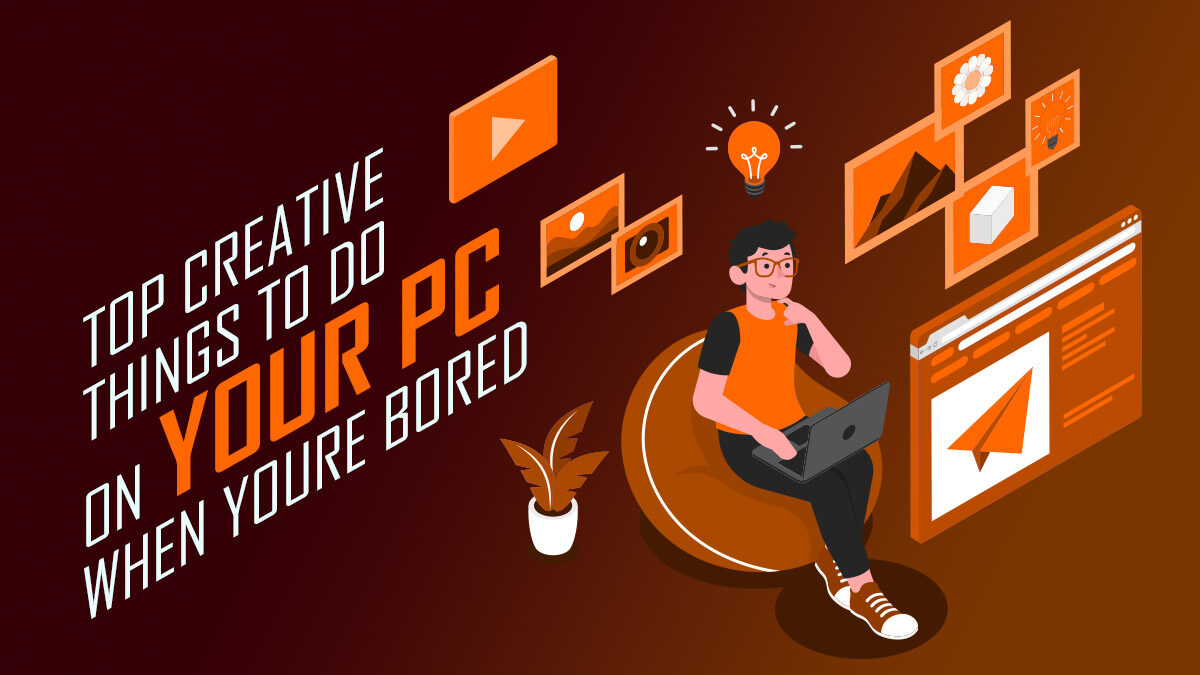
![IOR / Index of Refraction List For Common Materials [For Use In 3D Materials / Rendering] IOR / Index of Refraction List For Common Materials [For Use In 3D Materials / Rendering]](https://www.cgdirector.com/wp-content/uploads/media/2022/06/IORIndex-of-Refraction-List-for-Common-Materials-Twitter-594x335.jpg)
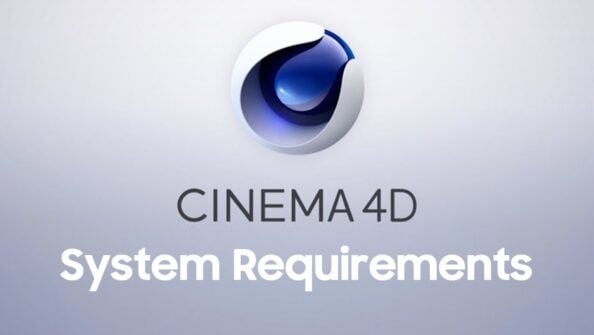
![Are Intel ARC GPUs Any Good? [2024 Update] Are Intel ARC GPUs Any Good? [2024 Update]](https://www.cgdirector.com/wp-content/uploads/media/2024/02/Are-Intel-ARC-GPUs-Any-Good-Twitter-594x335.jpg)


0 Comments